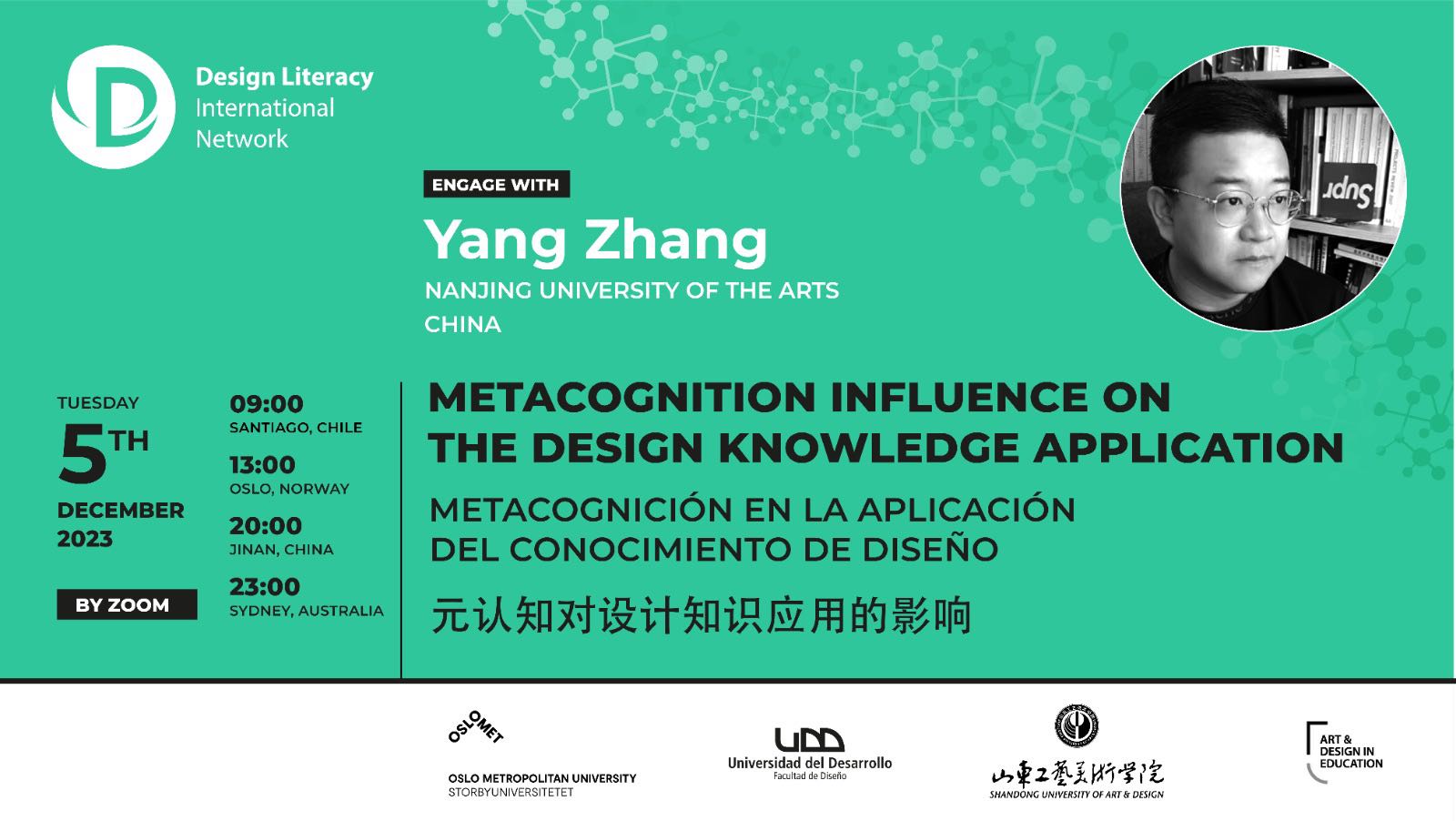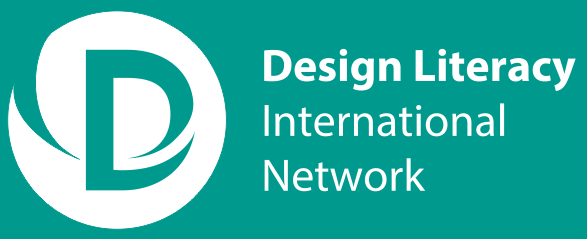
In the closing 2023 Engage with Idea series Yang Zhang will discuss Metacognition Influence on the Design Knowledge Application. The talk is based on his paper titled Insights on How Metacognition Influences Knowledge Application in Product Design Education (Yang at al, 2018) delivered at the Design Society’s Design 2018 conference.
According to the latest national subject catalogue in China (2022), Design is recognised to be interdisciplinary. The implication is that design educators should aim to train design graduates with skills spanning different subject areas. Thus, the purpose should be to foster students’ creative ability to drive innovation. For example, Zhejiang University https://www.zju.edu.cn/english/ and Tsinghua University https://www.tsinghua.edu.cn/en/ have addressed this goal by launching new design programmes which span different disciplinary subjects. On the other hand, to cooperate to develop cross-disciplinary skills, the Annual National College Students’ Innovation Projects encourages students from different majors. Over the past decade, more and more students with different study backgrounds are joining the design programmes.
The primary data which informed Professor Zhang’s research was a survey of more than 200 final year Industrial and Product Design undergraduate students enrolled in Chinese Universities. The results from the study provides the research community with an important insight on what type of knowledge these final year Industrial and Product Design students in China were relying on while undertaking their final year projects.
The research used the concept of Metacognition Awareness Inventory as an indicator for the subjects’ creativity levels. Researchers (Cropley, 2006; Puryear, 2016) believes that metacognitive ability is related to many abilities of individuals, among which creativity is particularly prominent. The metacognition can be measured by using Metacognition Awareness Inventory (Schraw & Dennison, 1994). It is suggested that people with higher metacognitive scores have relatively higher levels of creativity. The Metacognition Awareness Inventory, which comprised of the subjects’ Cognitive Knowledge and Cognitive Regulations, was correlated with the flowing types of knowledge:
- Domain Specific Knowledge;
- Domain-General/Independent Knowledge;
- Tacit Knowledge.
| Subject-related Knowledge items in Product Design |
| Domain-specific knowledge:
K1. Design History: knowledge relates to stylish perspectives K2. Material: knowledge relates to specific materials to attain certain concept solutions K3. Design methods: knowledge relates to the application of design research, and design case studies K4. Aesthetics: knowledge relates to colour, structure and form K5. Design representation: skills relates to 2D/3D drawing (effect drawing, three views) K6. User Trials: knowledge relates to simulations of product usage in which subjects are asked to fulfil specified tasks using a product or product simulation. K7. Client needs: knowledge relates to analysing the design brief K8. Mechanics K9. Ergonomics K10. Skill to operate relevant machines K11. Media technologies K12. Knowledge of organization and marketing K13. Psychology regarding with consumer and user Domain-general/independent knowledge: K14. Knowledge of information processing: information searching and analysing K15. Ill-structured problem-solving process: knowledge relates to analysing situations, defining problems, finding or generating solutions. K16. Strategies: knowledge relates to motivation, plan and goals. Tacit Knowledge: K17. Knowledge of existing design solutions: the precedents of similar project learned K18. Personal placement experience in design companies K19. Other experience in daily lives: travelling, reading, events, etc. |
The findings suggest that the students who scored highly on the Metacognition Awareness Inventory have ranked the reflective activities, which are make up the Tacit Knowledge category, higher than the either the Domain Specific or the Domain-General/Independent Knowledge category. Yang’s postulates although all three knowledge categories are important it is the reflective activities which enable the students to “reflect” on which of the specific knowledge category they should deploy at the specific design project’s juncture. This is a useful insight as further studies could potentially map out specific knowledge categories in relation to a design process. For example, the mapping of knowledge in relation to the design process inform design educators what specific array of knowledge students should demonstrate as part of the assignment based on what specific design phase the studio project assignment is focusing on. This approach could potentially support scaffolding and integrating knowledge development across the degree course, enabling better coordination between academics responsible for the specific courses.
The research could potentially support development of design tools to be used at a particular design stage that will encourage designers to use specific knowledge categories. Thus, these tools would actively encourage designers to activate knowledge categories throughout the design process stages.
Event recording in ENGLISH:
Event recording in SPANISH:
Event recording in CHINESE:
Dr Yang Zhang is a Professor of Industrial Design, at Nanjing University of the Arts. Yang has a strong background in design education, he teaches design studio courses, theoretical courses, and supervises master’s and doctoral students. He has extensive experienced in drawing studies. Recently he was awarded a competitive funding grant to explore the design culture in China.
He has a strong background in design education and innovation research. He has disseminated his research at international design conferences hosted in countries like Norway, the UK, Spain, and Croatia. He has been appointed as a visiting professor at the Central Academy of Fine Arts and Shandong University of Art & Design. He has joined Academy for Design Innovation Management as selected member and is the selected member of Jiangsu Association for Science Artists. Much of his recent work has centred on promoting design students’ creativity through teaching, with a key interest in enhancing design students’ capacity of creativity at the stage of design problem formulation. His research incorporates a perspective that metacognition plays a critical role in improving creativity. The aim of his research is to provide an explicit introduction on metacognition for both design lecturers and students to improve the effectiveness of learning at this stage, so that achieve fostering creativity.
References
Bruning, R., Schraw, G., & Ronning, R. (1999). Cognitive psychology and instruction. Upper Saddle River, NJ: Prentice-Hall, Inc.
Cropley, A. (2006). In Praise of Convergent Thinking. Creativity Research Journal, 18(3), 391–404. http://doi.org/10.1207/s15326934crj1803_13
National Degree Committee of the State Council, Ministry of Education of People’s Republic of China (2022). Postgraduate Education Discipline and Major Catalogue and Postgraduate Education Discipline and Major Catalogue Management, http://www.moe.gov.cn/srcsite/A22/moe_833/202209/t20220914_660828.html
Puryear, J. S. (2015). Metacognition as a Moderator of Creative Ideation and Creative Production. Creativity Research Journal, 27(4), 334–341. http://doi.org/10.1080/10400419.2015.1087270
Zhang, Y., Bohemia, E., & McCardle, J. (2018). Insights on How Metacognition Influences Knowledge Application in Product Design Education. In D. Marjanović, M. Štorga, S. Škec, N. Bojčetić, & N. Pavković (Eds.), DS 92: Proceedings of the DESIGN 2018 15th International Design Conference (pp. 2541–2552). Design Society. https://doi.org/10.21278/idc.2018.0416
Bookings
Bookings are closed for this event.
